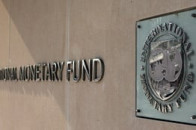Govt to close its accounts in banks
Will transfer deposits to centralised account at State Bank of Pakistan

The federal government has decided to close its accounts in commercial banks and transfer deposits worth Rs1.4 trillion, or almost 9% of the total deposits with banks, to a centralised account at the State Bank of Pakistan (SBP) to better manage its finances under an International Monetary Fund (IMF) obligation.
“The Finance Division, Government of Pakistan…dated August 19, 2020 has directed all federal government ministries, divisions, attached departments and subordinate offices (MDAS) to close their banks accounts with commercial banks/ financial institutions and transfer the balance funds to the federal government’s central account no 1 (non-food) with the SBP,” the central bank said in a circular to commercial banks and financial institutions on Wednesday.
“Upon receipt of account closure request, the respective branches will initiate the closure of accounts and transfer the available balances to their centralised treasuries within seven days.”
According to the Cash Management and Treasury Single Account Rules 2020 dated July 24, “Monies that have been appropriated through the federal government budget and have been transferred to scheduled bank accounts by government offices shall be reverted to the non-food account No 1 of the government by June 30, 2020…”
According to 10-year Cash Management and Treasury Single Account Policy 2019-2029, “the key objectives of modern cash management are timely availability of cash to meet obligations, economising on cash within the government to save costs and reduce risk, management of government’s short-term cash flows efficiently (both cash deficits and cash surpluses) in such a way that it benefits debt management and monetary policy.”
However, the federal government in its notification dated August 19 and the central bank in its circular to commercial banks and development finance institutions (DFIs) have given no timeline to fully implement the directives for the transfer of funds to the central bank from commercial banks.
“The process may take some time as no definite timeline has been mentioned for the receipt of account closure request,” Topline Research analyst Fawad Basir said in a commentary.
The PTI government was working on the idea since it started negotiation with IMF - for $6 billion bailout in May 2019 - immediately after coming in power in the aftermath of July 2018 general elections.
In phase-II, provincial governments are likely to transfer funds to the government treasury single account (TSA) at the central bank from commercial bank and DFIs.
The central bank said in its circular that in order to ensure closure of all the accounts and transfer of their balances to SBP through a standardised procedure, banks are hereby advised to develop their internal applications and processes to keep track of the receipt of directives by the authorised signatories; closure of accounts by bank branches and transfer of available balances to their centralised treasury and transfer of the consolidated amount by the centralised treasury to the SBP through RTGS (an online funds transfer facility available to banks).
Basir added that the total deposits categorised under the federal government (including government trusts, NGOs and corporate bodies) amount to Rs1.4 trillion which translates to around 9% of total deposits as of August 2020.
“Our back of the envelope working…suggests negative earnings impact of up to 21% (on two banks) likely to take the most hit,” he said.
The federal and provincial governments, SBP may decide to do the same for provincial government deposits in phase-II, where (another two) banks…are likely to be the most affected,” he said.
The SBP announcement badly impacted share price of banks listed at the Pakistan Stock Exchange (PSX), according to JS Research.
Published in The Express Tribune, October 8th, 2020.
Like Business on Facebook, follow @TribuneBiz on Twitter to stay informed and join in the conversation.



















COMMENTS
Comments are moderated and generally will be posted if they are on-topic and not abusive.
For more information, please see our Comments FAQ